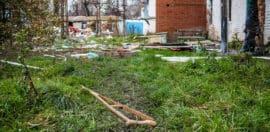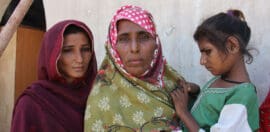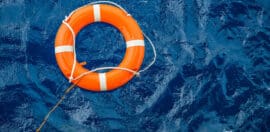Charity alliance to shake up overseas aid model

19 August 2021 at 8:20 am
“This alliance will make it really easy for donors who want to help to make that decision and to act on that decision.”
As the frequency and severity of large scale international disasters increases, 16 of Australia’s top international aid agencies are uniting their campaign and fundraising efforts, making it easier for the public to support their work.
The Emergency Action Alliance (EAA), launched officially on Friday, will act as a single fundraising entity for large-scale disasters that their members are already working on, such as the crisis response to cyclone Sabita in Bangladesh, or Yemen’s health crisis.
Member organisations include UNHCR, Oxfam, Save the Children, World Vision, Plan International, Care, and Action Aid.
EAA executive director, Kerren Morris, told Pro Bono News that given the number of disasters was increasing year on year, a single fundraising body for overseas aid would simplify donor decisions.
“In these emergencies there are so many players, so many charities, all asking for funds, that it can be confusing. This can create uncertainty, and uncertainty creates donor hesitation,” Morris said.
“And so this alliance will make it really easy for donors who want to help to make that decision and to act on that decision.”
In the past few years, the foreign aid sector has fought a twin battle of decreased government funding and a declining donor base. Morris said that this was an opportunity to pool resources and attract new donors.
“If there’s someone who isn’t sure which one to donate to or perhaps hasn’t donated before, then this represents a simple and easy decision to help people in a crisis,” she said.
She said it was also an “intelligent and well-structured” way of making sure funds are distributed depending on the crisis response cycle.
“For example, the first tranche of fundraising would go into those organisations who are first responders… whereas those who are more involved in the rebuilding or in longer term resilience work, they will come at a later stage of the distribution of funds.”
To have an appeal funded, charities must submit an application to the alliance covering the relief work they are doing and what is needed.
The appeals are then decided on by the scale and urgency of a humanitarian response, whether alliance members are in a position to act quickly and effectively, and if there are reasonable grounds to believe that an appeal would be successful.
“So Haiti was and is a very significant disaster, but it missed one of our key criteria points that it didn’t receive high levels of media coverage… which would mean it would be unlikely to be a successful appeal,” Morris said.
If an appeal, such as the Haiti disaster, isn’t successful, Morris said that member organisations were still encouraged to run their own appeals.
“Member organisations who still do their own fundraising would have activated their appeals,” she said.
In the coming months, the major focuses of the alliance will be the unfolding Afghanistan crisis, as well as COVID-19 impacting vulnerable communities.
“We look at each of our members’ activities, what they’re up to, what’s happening, and each day will be getting closer to making a decision about what to do next,” she said.
There are a number of alliances across the globe that the EAA regularly communicates with to inform best practice.
“The decisions that the alliances in the UK, France, and Japan make also help feed into our decision making process,” she said.
“We are regularly in contact with them and they are a really important source of information for us and making those decisions.”
Find more information about the EAA here.







